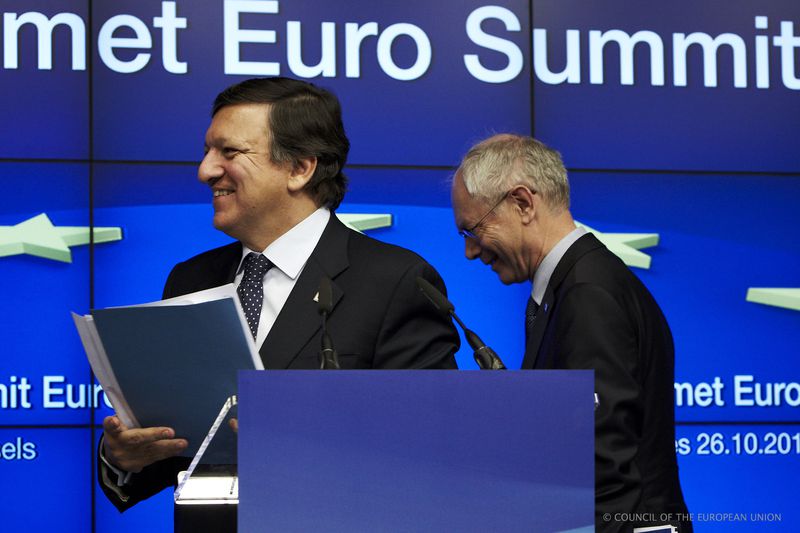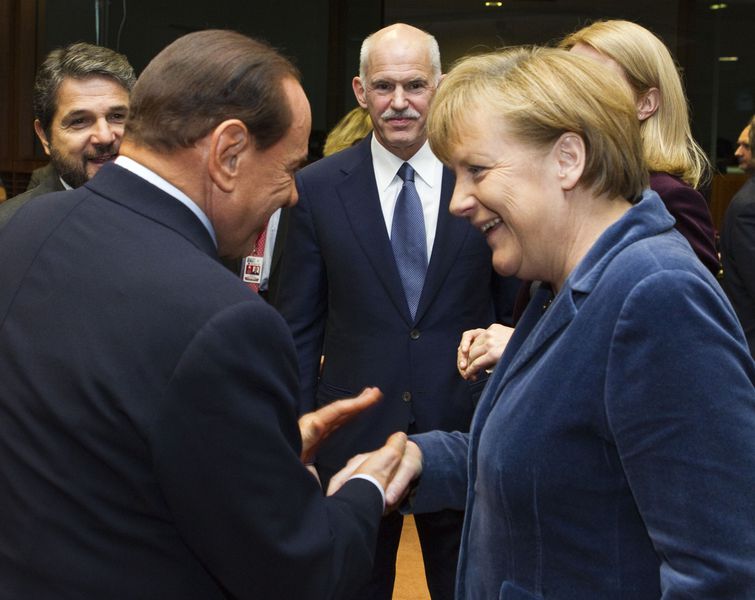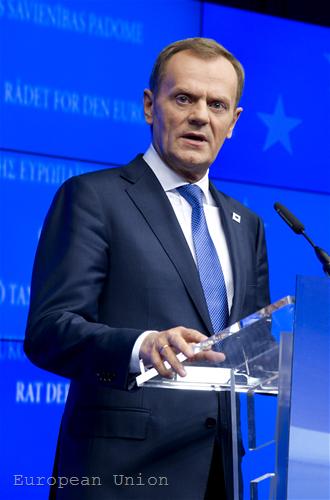Will Germany and France draw the "big bazooka" against the crisis?
Ralitsa Kovacheva, October 10, 2011
 Berlin and Paris will present a package of measures to stabilise the euro area and expect to receive support from their European colleagues by the G20 summit in Cannes in November. German Chancellor Angela Merkel and French President Nicolas Sarkozy met yesterday in Berlin to discuss the debt crisis, Greece, recapitalisation of banks and the use of the euro rescue fund EFSF. Both stressed that they shared the same opinion in terms of recapitalisation of banks, although without explaining in detail whether they have resolved the differences on the use of the EFSF for that purpose.
Berlin and Paris will present a package of measures to stabilise the euro area and expect to receive support from their European colleagues by the G20 summit in Cannes in November. German Chancellor Angela Merkel and French President Nicolas Sarkozy met yesterday in Berlin to discuss the debt crisis, Greece, recapitalisation of banks and the use of the euro rescue fund EFSF. Both stressed that they shared the same opinion in terms of recapitalisation of banks, although without explaining in detail whether they have resolved the differences on the use of the EFSF for that purpose.
Germany insists the bailout fund to be used as a last resort, only after the banks have exhausted the possibilities of raising market funding and support from national governments. But France, whose banks have large exposures to debts of eurozone peripheral economies, prefers to use European money. The German chancellor said only that both countries wanted, in case of recapitalisation, the same criteria to be applied to all European banks.
As for Greece, Merkel and Sarkozy refrained from further comments, saying just that both were working closely, while awaiting the Troika report. However, Angela Merkel has already signalled that there are discussions on a possible increase of private sector involvement in the second Greek loan. Late last week, after meeting European Commission President Jose Manuel Barroso, she said that the Troika report was expected to show whether the economic reality in Greece was still compatible with the decisions of 21 July. Then it was agreed the private owners of Greek debt to incur an average loss of 21%. According to the DPA, however, it may reach 60% of the face value of Greek bonds.
The package of measures, to be presented by both countries, will also include new proposals to strengthen the integration between the 17 eurozone countries, including through Treaty changes, Angela Merkel said. She has been preparing the ground for such a proposal for a long time, saying that changes in the European treaties should not be taboo. Paris and Berlin have already proposed the creation of a eurozone government. Moreover, a few days ago after meeting Dutch Prime Minister Mark Rutte, Angela Merkel said she supported the Dutch proposal for a special commissioner for the euro area. However, she did not comment on Mark Rutte's idea of possible expulsion from the eurozone.
Meanwhile, British Prime Minister David Cameron openly urged Germany and  France to take a "big bazooka" to resolve the crisis in the eurozone. In an interview with The Financial Times, he explained that this implied a substantial increase in the size of the EFSF from the current 440 billion euros, so it could pour up to 2 trillion euros into banks and sovereign debt markets. He said Mr Sarkozy should recognise the need for reliable bank stress tests, even if this required recapitalisation of major institutions. The rescue plan also includes, according to David Cameron, deepening of the single market and improving the governance of the euro area, even if this requires Treaty changes. "That’s the menu. It’s not à la carte – you have to do the whole thing.” “Time is short, the situation is precarious,” Mr Cameron warned.
France to take a "big bazooka" to resolve the crisis in the eurozone. In an interview with The Financial Times, he explained that this implied a substantial increase in the size of the EFSF from the current 440 billion euros, so it could pour up to 2 trillion euros into banks and sovereign debt markets. He said Mr Sarkozy should recognise the need for reliable bank stress tests, even if this required recapitalisation of major institutions. The rescue plan also includes, according to David Cameron, deepening of the single market and improving the governance of the euro area, even if this requires Treaty changes. "That’s the menu. It’s not à la carte – you have to do the whole thing.” “Time is short, the situation is precarious,” Mr Cameron warned.
Perhaps one of the reasons why the British prime minister speaks so directly about the euro area problems is that last week the Moody 's rating agency downgraded 12 British banks. Then Finance Minister George Osborne said that the British banks were liquid and they were not experiencing the current problems of some banks in the euro area. Obviously, however, the UK cannot remain isolated from the general feeling of insecurity. Along with the British banks, Moody 's has also cut the credit rating of nine Portuguese banks.
The Merkel-Sarkozy meeting was expected with great interest because of the forthcoming European Council, and the agenda of EU summits is often set by France's and Germany's leaders. However, we will hardly understand what exactly their package of decisive measures includes. But it may become clear what are the chances these to get support from the other members of the eurozone.
The press conference in Berlin ended in an unusual way. While the two leaders were leaving, a voice from the hall shouted: "Madam Chancellor, please make a statement on Sebastian Vettel." I'm glad and I heartily congratulate him for the great victory, Angela Merkel answered. Just a few hours earlier the 24-year-old German won the Formula 1 championship for the second consecutive year and became the youngest double world champion in the history of the race. It will become clear soon whether this is a good omen for Ms Merkel's plans.
 | © The Council of the European Union
| © The Council of the European Union | © The Council of the European Union
| © The Council of the European Union | © European Union
| © European Union Klaus Regling | © Council of the EU
Klaus Regling | © Council of the EU Mario Centeno | © Council of the EU
Mario Centeno | © Council of the EU Mario Centeno | © Council of the EU
Mario Centeno | © Council of the EU